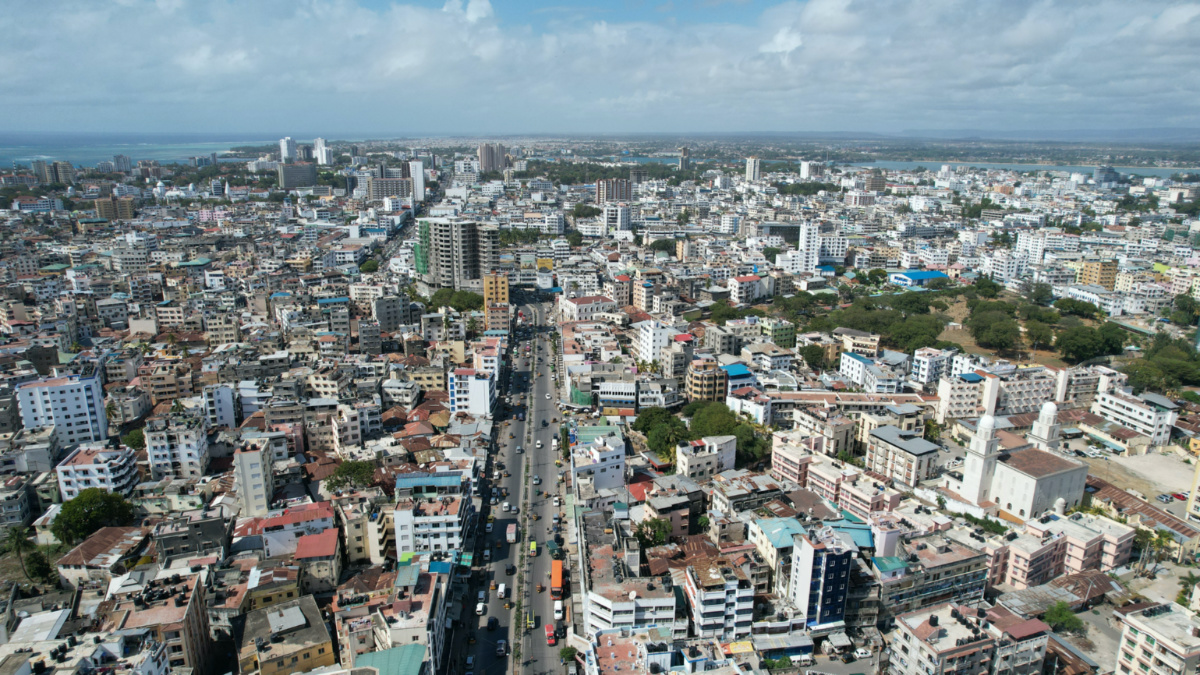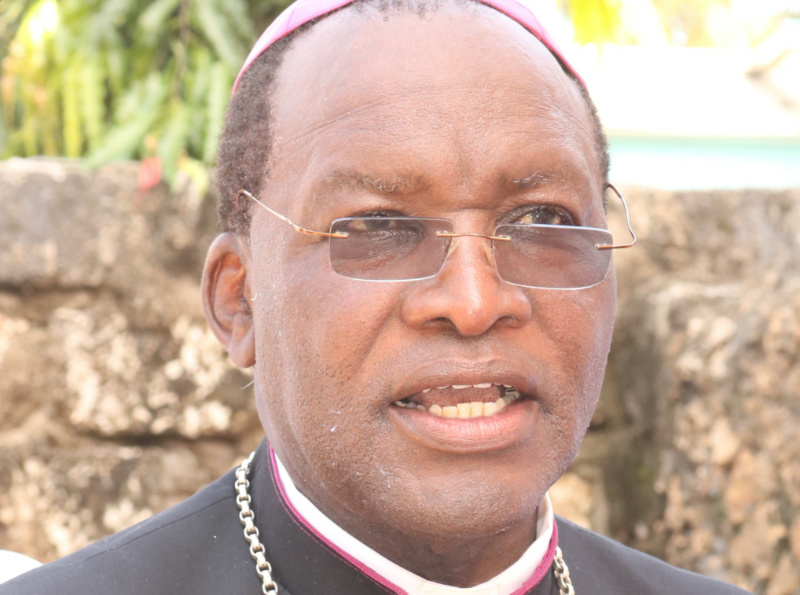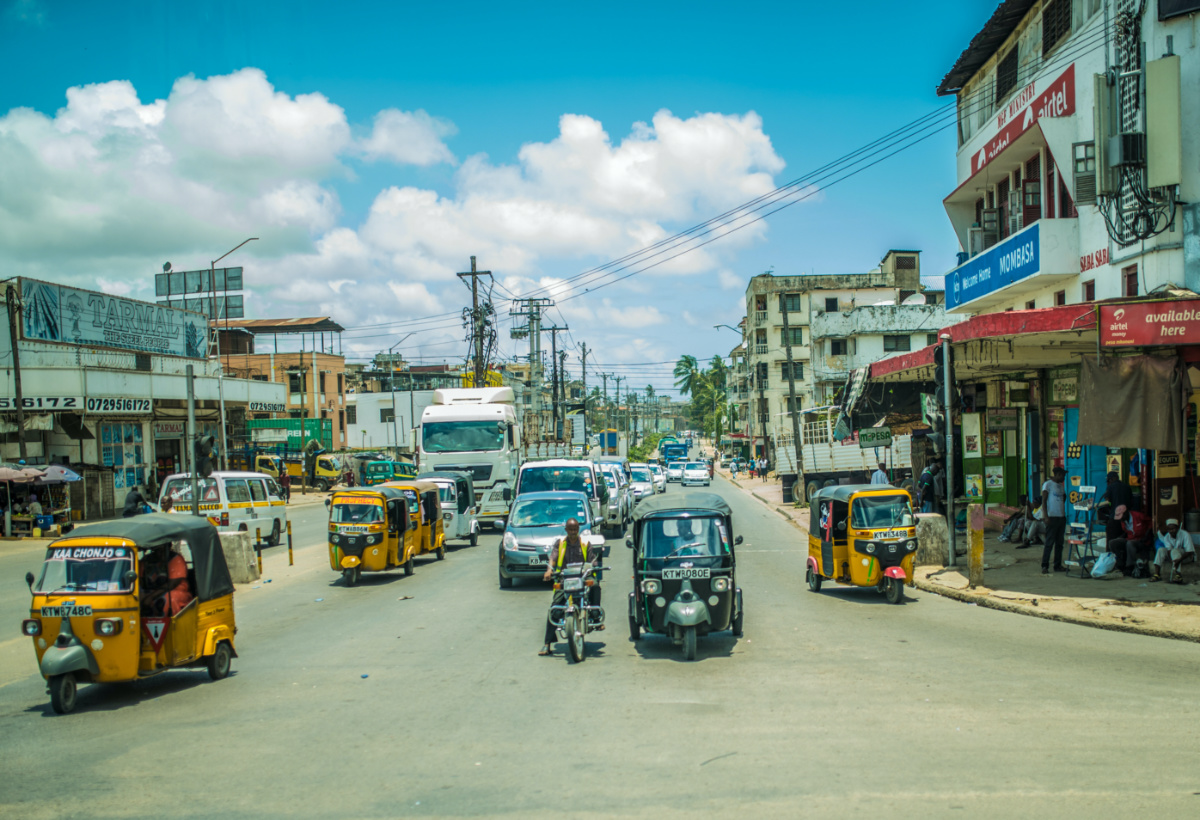
TONNY ONYULO reports on the key role Christian and Muslim leaders are playing in addressing key factors which led youths to become radicalised…
Mombasa, Kenya
Selling his fruits under an umbrella on a street market in this coastal city, Joseph Juma narrated how religious leaders saved him from joining some of the terror groups in the region and outside the country due to extremism and radical teachings he had received from rogue imams.
“I was deceived to believe that wars being fought against Muslims are part of a world campaign against Islam,” said the 37-year-old father of two, adding that he was told that being a true Muslim, they were to take arms and prevent Islam. “But I want to thank the religious leaders who talked to us and reminded us that Muslim is a peaceful religion.”
Juma, who was later deradicalised and offered money by religious leaders to start a grocery business, said the false preaching to join Islamic militia escalated in 2011 after Kenyan troops entered neighbouring Somalia to launch a military offensive against al-Shabaab, a militant group in Somalia battling the Somali Government.
The militant group with links to al-Qaeda had posed national security to Kenya by carrying out several cross-border raids during the months preceding the invasion.
“They wanted us to join the militia group to defend Islam, but they were lying to us. The religious leaders did a great job of telling us the truth that the Quran is against such groups and killings of innocent people,” he said.

The city of Mombasa in south-east Kenya. PICTURE: Hamids Lens/iStockphoto.
Juma is among thousands of youths in this south-eastern Kenya city along the Indian Ocean who have been reformed by religious leaders. Church leaders and Muslim imams have stepped up their campaign to reintegrate youths radicalised in the Islamic militia group by providing job opportunities and micro-finance loans to start their businesses. Experts have cited unemployment, poverty, lack of education, and political marginalisation as the main factors contributing to the radicalisation of the youths in the East African region.

Archbishop Martin Kivuva Musonde. PICTURE: Elvis Kenga
“Youths face many problems because many have no jobs and are idle. So when one comes with a solution to the problems they are facing, they get easily convinced and join the Islamic militia.”
– Archbishop Martin Kivuva Musonde, of Kenya’s Mombasa Archdiocese.
The coast region of Mombasa and other neighbouring towns, including Kilifi, Lamu, Kwale, Malindi, and Taita Taveta, are areas inhabited predominantly by a Muslim population. Various reports show that the regions are hotspots of violent extremism and radicalisation. The Islamic militants have carried out several attacks in villages and towns, killing hundreds of people. This situation has been blamed on the rising number of Kenyan youths being radicalised into the Islamic militia.
Archbishop Martin Kivuva Musonde, of Kenya’s Mombasa Archdiocese, said Islamist militants were taking advantage of vulnerable youth languishing in poverty and have no jobs to radicalise and recruit them in the militant groups in the region or outside the country.
“Youths face many problems because many have no jobs and are idle. So when one comes with a solution to the problems they are facing, they get easily convinced and join the Islamic militia,” Archbishop Musonde, who is also the chair of the Kenya Conference of Catholic Bishops, told Sight in an interview.
To fight back, church leaders, the Council of Imams and local non-governmental organisations have launched a campaign to reform youths who have been radicalised in the Islamic militia and prevent those intending to join the militant group.
In churches, schools, and marketplaces, clergy have been urging the youths to be worried about people telling them to join the Islamic militia and learn how to value and respect those who might differ from them in faith or culture. In mosques, imams preach to the youths to embrace peace and expound the meaning of jihad in the Muslim holy book of the Quran so that they are not deceived that joining the Islamic militia is part of the Muslim religion.
“Jihad is not the killing of unbelievers. The Quran is against such killings,” Sheikh Abdulahi Mohamed recently told a gathering of youths in a mosque in Mombasa. “Terrorists are misusing our religion. They are luring with money and false preaching. Don’t be deceived. Reject their teachings and embrace peace and live in harmony.”
“We invite both Christians and Muslim youth during our workshops because radicalisation happens in every religion,” said Archbishop Musonde. “We educate them on the importance of keeping peace and remind them that God loves peace and anyone causing harm to another person commits sin.”

A street scene in Mombasa, Kenya, in 2016. PICTURE: Przemek Kunert/iStockphoto.
Pastor Emmanuel Matati, of the Pentecostal Church in Mombasa, said he has been visiting Christian and Muslim schools, orphanages, churches and mosques to talk to young people and prevent them from turning to violent groups.
“I understand that extremist groups have taken control of these institutions, and they visit young people living there to give them false teachings,” he said. “We are carrying out serious campaigns to tell the youths and sensitise them that God is God of peace, and people should not mislead them to cause innocent deaths and bloodshed. We keep reminding them that no religion condones extremism and radicalisation, so they should shun such teachings.”
Sheikh Mohamed said they have strictly put measures to allow religious leaders and scholars to use mosques and Muslim schools to preach counter-extremism narratives.
“We have instructed our teachers to spread the true teachings of Islam and ensure there is no radicalisation among the youths. But in case we hear that they are doing contrary to what we have directed them to do, we act quickly to ensure we remove them and hand them over to the police,” he said.
We rely on our readers to fund Sight's work - become a financial supporter today!
For more information, head to our Subscriber's page.
Archbishop Musonde said they are rehabilitating youths who have been radicalised and offering them alternative livelihoods to help themselves and their families. Through the help of donor funds, the church resolved early this year to train youth with practical skills like tailoring, masonry, welding, plumbing, and IT skills to help them get employed, he said.
“We believe that when we create jobs for the youth and give them employable skills, then we will save them from being lured with money to join Islamic militia,” said Archbishop Musonde, noting that they are sponsoring more than 200 youths yearly to access vocational training and counselling. “This opportunity has excited youths, and I don’t think now they will have time to join the terrorist group because of money and false promises.”
Pastor Matati said he and other religious leaders in the coastal region are addressing the issue of unemployment by linking youths to government funds to start their businesses and save them from being radicalised.
“Radicalisation of youths has recently dropped because the majority of the youths are now busy doing businesses through government funds,” he said. “The government has been giving youths funds to start their businesses to earn an income, which has helped fight against radicalisation.”
Juma agreed, saying such empowerment saved him and could save other youths from being radicalised.
“Youths accept to be lured into joining Islamic militia because of poverty and being idle,” he said. “But when they are empowered to start something that brings them the income, they cannot accept, or they will not even have time to listen to anyone.”





